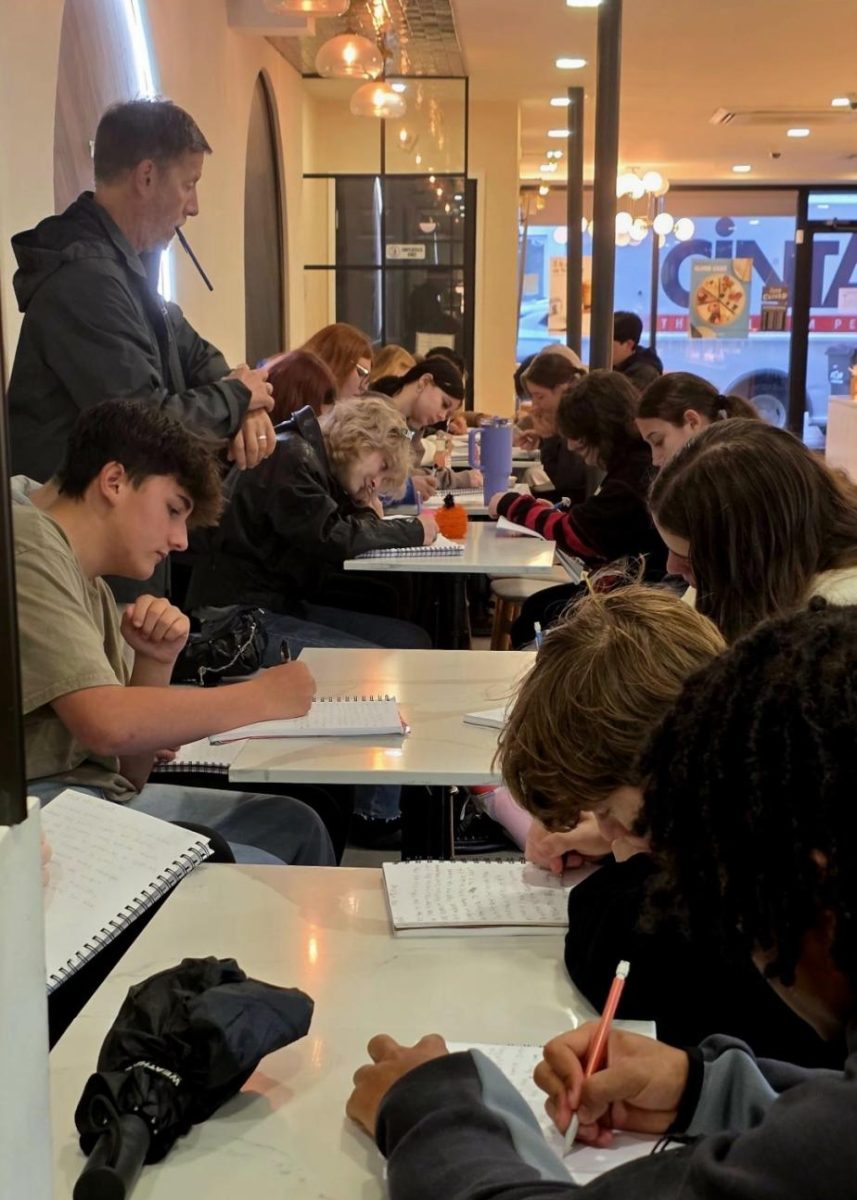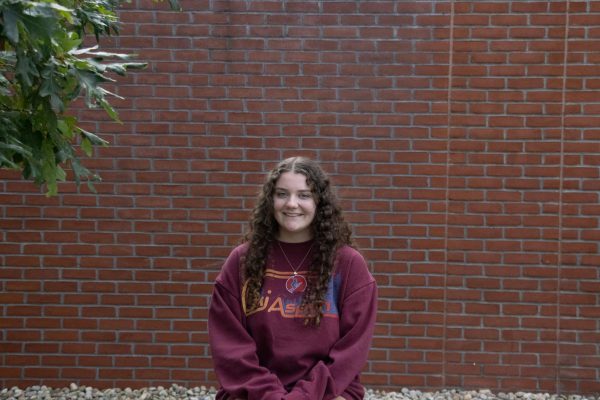For most Morgan students, typical classes follow the same structure, lectures, notes, structured assignments, and tests. But in English teacher Mr. Bergman’s Creative Writing class, the period consists of much more freedom and imagination. When you walk into the room during E period, students are never writing long essays or taking out homework they spent hours working on. His students are often reading pieces of poetry to inspire their next project, or deep in thought for a timed writing creative exercise. Either way, Mr. Bergman stands in front of the class, encouraging students to take risks with their work and share their ideas.
“Creative writing isn’t just about poetry or short stories,” Bergman explained. “It’s creative thinking. What we need
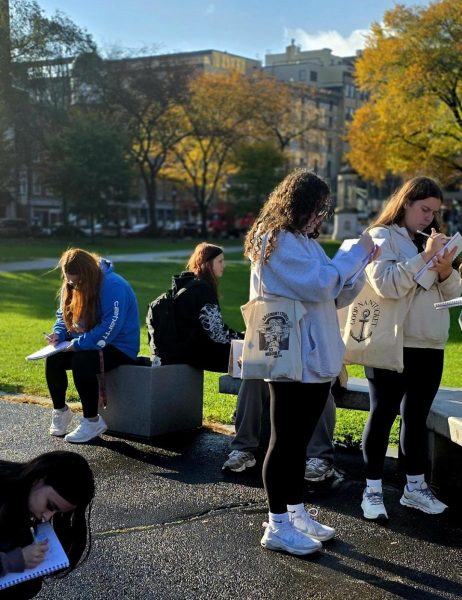
more of is what Edward De Bono called ‘lateral thinking,’ looking at something from new angles, bringing order to chaos. That skill goes far beyond the classroom.”
Bergman’s class focuses on allowing students to really utilize their mind without the fear of failure or what people will think of them. One activity he runs often is the timed writing exercises where he pushes students to get out of their comfort zone. He puts on a timer for a set amount of time and students just dive into their sketch books and write. He says to the students that “when it feels like you want to stop, that’s the perfect time to push yourself and keep going.” He explained, “We stop when things feel uncomfortable,but those are the moments that connect our left and right brain, the moments when real creativity sparks.”
Bergman believes that there are benefits to this that are more significant than just improving your writing. “Imagination is what’s missing in education,” Bergman explained. “It’s the ability to see not just what is, but what could be. That’s what drives change in art, science, and life.”
School systems and typical school classes often value perfection, while Bergman teaches students to benefit from their mistakes. “School teaches us to get it right the first time or get a bad grade or punishment for it,” he said. “But creativity gives you permission to fail. Only through mistakes do we reach something meaningful.”
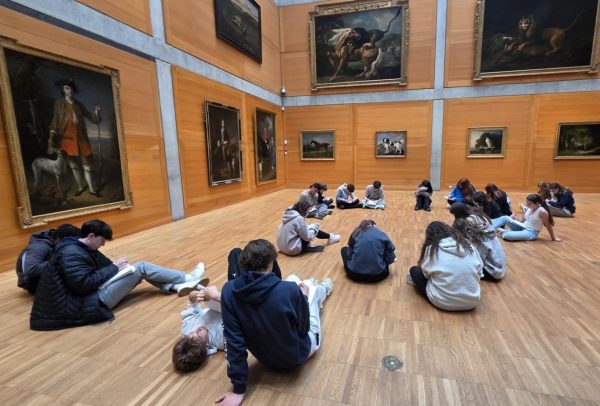
One of Bergman’s favorite class traditions is the field trip to the Yale Art Museum, where students will write poetry inspired by artwork. “That’s where it all comes together,” he said. “We create, we present, and students see their words come alive. I can almost guarantee they’ll never forget that experience.”
Bergman strongly encourages students to share their work and ideas in class discussions. His advice to students who might be feeling nervous to read aloud is to “just go for it. If someone criticizes you, that’s their problem, not yours. Sharing your voice is how you grow.”
His lessons often begin or end with brief moments to practice mindfulness, sometimes just a few minutes to breath or reflect. This helps his students to de-stress and decompress before writing. “The public education model is built on conformity, but real learning happens when we slow down. There’s something sacred about being present in the moment,” Bergman said.

For Senior , who took Creative Writing as a junior, the class was a turning point in helping her creativity, imagination, and the way she expresses herself. “It really helped me think outside the box,” she said. “Mr. Bergman’s way of teaching is so different from other structured classes where there is not much room for creativity. The way he teaches works for students like me, who can follow instructions well but still want to make things their own.” She explained that his assignments are “guided enough to help you, but not so strict that they limit your ideas.” One of her favorite memories was a day she read a poem aloud to her class that she was especially proud of. “Mr. Bergman encouraged me to share it with the class,” she said. “It was such a good feeling, this helped me be more confident in sharing my ideas out loud.”
After teaching for nearly three decades, Bergman still finds so much joy in showing up for his students and teaching. “I’ve had many tragedies in my life recently, and teaching has been a form of therapy,” he explains “Being around students’ laughter and creativity is a gift I’ll never forget.”
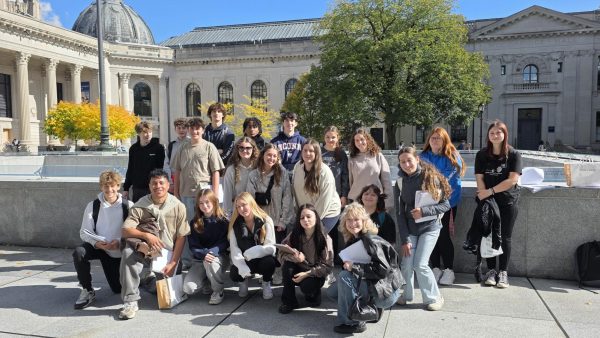
In Mr. Bergman’s creative writing class, the learning is not about perfect grammar or how well you can memorize facts. It’s about the ability to learn from your mistakes, being able to think differently, and the power your imagination holds.


